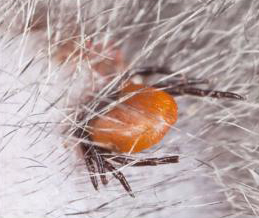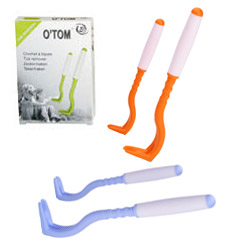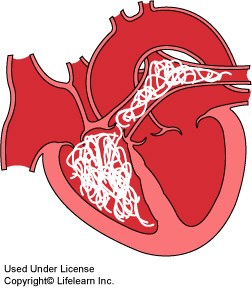Parasite Prevention – Ticks, Fleas, Heartworm and Intestinal Worms!
What are the major parasites of concern in Ontario?
Due to climate change, we are experiencing an increasing number of parasites in Ontario compared to previous years. The Canadian Parasitology Expert Panel in Companion Animals recommends that dogs be treated with a parasite preventative for the high-risk transmission period in Ontario (March to November). #1 – Ticks
 Ticks are a growing concern in Ontario and we are seeing more and more of them each year. The “hotbed” of ticks in Ontario started along the St. Lawrence and has expanded dramtically across the province, including the GTA! Ticks have been found in wooded areas, tall grasses, leaf litter, and roadside ditches throughout York Region. Ticks have also been found in the Rouge Valley and Toronto Island. In Ontario we have a number of local endemic tick species. The biggest concern is with Ixodes scapularis, the Deer Tick (Blacklegged Tick), which transmits Lyme Disease. Lyme Disease affects both people and dogs. In dogs it can cause joint pain, fever, and kidney disease. A Deer Tick must bite and remain attached for approximately 24-48 hours in order to transmit Lyme Disease.
Ticks are a growing concern in Ontario and we are seeing more and more of them each year. The “hotbed” of ticks in Ontario started along the St. Lawrence and has expanded dramtically across the province, including the GTA! Ticks have been found in wooded areas, tall grasses, leaf litter, and roadside ditches throughout York Region. Ticks have also been found in the Rouge Valley and Toronto Island. In Ontario we have a number of local endemic tick species. The biggest concern is with Ixodes scapularis, the Deer Tick (Blacklegged Tick), which transmits Lyme Disease. Lyme Disease affects both people and dogs. In dogs it can cause joint pain, fever, and kidney disease. A Deer Tick must bite and remain attached for approximately 24-48 hours in order to transmit Lyme Disease.
.jpg) The best defense against ticks and Lyme Disease is a parasite preventative medication administered during the spring, summer, and fall as well as regular tick-checks of your dog. Tick prevention for dogs comes in a variety of oral and topical products. Dr. Boultbee or Dr. Kramer will go over the various products and which one is recommended for your dog at your annual heartworm test appointment. Please call us at (905) 833-5401 to book or confirm your appointment today! Tick checks involve carefully combing through your dog’s fur while looking and feeling for any bumps. Ticks commonly attach and feed around the face, armpits, and between the toes, but can also be found elsewhere on the body. Nymphs may be as small as a sesame seed, while adult ticks that have been feeding for a while can be as big as a blueberry! When you find a tick, carefully remove it with a tick-remover or a pair of tweezers. Make sure you remove the head as well to prevent the area from developing an infection from a retained head.
The best defense against ticks and Lyme Disease is a parasite preventative medication administered during the spring, summer, and fall as well as regular tick-checks of your dog. Tick prevention for dogs comes in a variety of oral and topical products. Dr. Boultbee or Dr. Kramer will go over the various products and which one is recommended for your dog at your annual heartworm test appointment. Please call us at (905) 833-5401 to book or confirm your appointment today! Tick checks involve carefully combing through your dog’s fur while looking and feeling for any bumps. Ticks commonly attach and feed around the face, armpits, and between the toes, but can also be found elsewhere on the body. Nymphs may be as small as a sesame seed, while adult ticks that have been feeding for a while can be as big as a blueberry! When you find a tick, carefully remove it with a tick-remover or a pair of tweezers. Make sure you remove the head as well to prevent the area from developing an infection from a retained head.

What is the life cycle of the Deer Tick?
Eggs lie dormant over the winter and mature in the spring into larvae. Larvae prefer to feed on mice and birds and can pick up the Lyme Disease bacteria, Borrelia burgdorferi, through these hosts. After feeding from the spring to the fall, larvae lie dormant over the winter on the ground. Nymphs bloom the following spring and can begin transmitting disease at that time. Nymphs molt into adult ticks in the fall. Both nymph and adult Deer Ticks feed on a variety of animals (including deer, mice, humans, and domestic animals) can transmit Lyme Disease to people and dogs.
 #2 – Fleas
#2 – Fleas
Fleas can be found feeding on dogs and cats, especially in the hot and humid summer weather. They lay their eggs inside the home (especially in the corners of rooms and under furniture). Fleas can also feed on humans. Most of the parasite prevention medications also protect against fleas.
#3 – Heartworm
This worm grows in the hearts of infected dogs and cats. It is transmitted by the bite of an infected mosquito and can spread to other dogs and cats via this route. Treatment for heartworm disease is very risky (and expensive) and thus we strongly recommend annual prevention for at-risk pets. Heartworm prevention is covered in the majority of the parasite prevention products and is administered from the spring to the fall in Ontario. In conjunction with annual prevention, heartworm testing is strongly recommended for dogs as well to assess whether they have acquired the disease in the previous year. This is a blood test, typically collected in the spring, and can be combined with annual wellness bloodwork. Please give us a call at (905) 833-5401 if you have any questions.

#4 - Intestinal Worms
Intestinal worms include roundworms, hookworms, tapeworm, coccidia, and Giardia. These parasites are common in puppies and kittens as they are transmitted from mum in development and in nursing. They are also common in adult dogs in the warmer weather because dogs and cats are out and about! Going on walks, exploring the neighbourhood, and going to the park become a major pastime for many pets in the warmer weather. When a pet sniffs soil that another animal has defecated in, they can pick up some of these intestinal parasites. Tapeworms, on the other hand, are acquired by hunting mice or rabbits or through a flea infestation. Some intestinal parasites can be transmitted to people. Most of the parasite prevention medications recommended for dogs and cats in the summertime help prevent intestinal worm infections in animals.

*New this year* Ask us about the easy once a month beef flavoured chewable for dogs that covers all internal and external parasites!